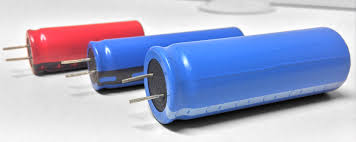
Breaking News
 China's Nightmarish New Bio Weapon Targets Race and Ethnicity
China's Nightmarish New Bio Weapon Targets Race and Ethnicity
 The Epstein Files Just EXPOSED the AI Mind Control Agenda (2026 Warning)
The Epstein Files Just EXPOSED the AI Mind Control Agenda (2026 Warning)
 Maxwell offers testimony if granted Trump clemency
Maxwell offers testimony if granted Trump clemency
 How RFK Jr's Guidelines Could Change Farming - Joel Salatin
How RFK Jr's Guidelines Could Change Farming - Joel Salatin
Top Tech News
 SpaceX Authorized to Increase High Speed Internet Download Speeds 5X Through 2026
SpaceX Authorized to Increase High Speed Internet Download Speeds 5X Through 2026
 Space AI is the Key to the Technological Singularity
Space AI is the Key to the Technological Singularity
 Velocitor X-1 eVTOL could be beating the traffic in just a year
Velocitor X-1 eVTOL could be beating the traffic in just a year
 Starlink smasher? China claims world's best high-powered microwave weapon
Starlink smasher? China claims world's best high-powered microwave weapon
 Wood scraps turn 'useless' desert sand into concrete
Wood scraps turn 'useless' desert sand into concrete
 Let's Do a Detailed Review of Zorin -- Is This Good for Ex-Windows Users?
Let's Do a Detailed Review of Zorin -- Is This Good for Ex-Windows Users?
 The World's First Sodium-Ion Battery EV Is A Winter Range Monster
The World's First Sodium-Ion Battery EV Is A Winter Range Monster
 China's CATL 5C Battery Breakthrough will Make Most Combustion Engine Vehicles OBSOLETE
China's CATL 5C Battery Breakthrough will Make Most Combustion Engine Vehicles OBSOLETE
 Study Shows Vaporizing E-Waste Makes it Easy to Recover Precious Metals at 13-Times Lower Costs
Study Shows Vaporizing E-Waste Makes it Easy to Recover Precious Metals at 13-Times Lower Costs
High-density hybrid powercapacitors: A new frontier in the energy race

Chinese family-owned company Shenzhen Toomen New Energy is tough to find, at least on the English-language internet, but Belgian electronic engineer Eric Verhulst bumped into Toomen representatives on a tiny stand at the Hannover Messe expo in Germany back in 2018, while looking for next-gen battery solutions for an electric mobility startup he was running.
The Toomen team made a hell of a claim, saying they'd managed to manufacture powerful supercapacitors with the energy density of lithium batteries. "Of course, that's an unbelievable claim," Verhulst told us. "It's a factor of 20 better than what, for example, Maxwell had at the time. So I took my time, went over there, looked at their tests, did some tests myself, and I got convinced this is real. So at the end of 2018, we made an agreement to become their exclusive partner."
According to Verhulst, when he and his team got these "power capacitors" into the lab, they performed even better than they looked on the spec sheet. He tried to break them with charge and discharge rates up to 50C, more than double their rated capacity. They refused to fail. He left them fully charged for months at a time, and found them still well charged when he picked them up again. The University of Munich tested and confirmed their ability to handle temperatures down to -50 ºC (-58 ºF) and up to 45 ºC (113 ºF) without any heating or cooling systems.

 Smart dust technology...
Smart dust technology...

